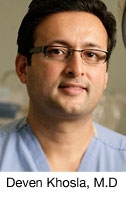The recent article on the accident and incredible recovery of extreme athlete Grant Korgan in the Reno Gazette Journal reminds me of a patient.
I met Suzanne Perlee in 2004 in the Renown ER after a jet skiing accident that resulted in a severe traumatic brain injury, respiratory failure, a bruised lung and rib fractures. Suzanne had been face down in the water unconscious for up to five minutes before receiving CPR. When she arrived at the hospital she was completely non-responsive.
My role in Suzanne’s care was to alleviate the pressure in her brain from a subdural hematoma. I performed a craniotomy to evacuate the hematoma and inserted a drain for the excess fluid. She also had a chest tube, feeding tube and trach tube placed. She was in the hospital for two months and when she left to move to a hospital closer to family she was still on a ventilator only responding to commands intermittently.
While she left the area and has been under the care of other physicians, I have been able to follow Suzanne’s progress over the years because she writes me letters and maintains a blog. At first the blog entries were written by her family and friends, but in 2005 she began writing herself. During the over seven years since her accident she has made slow, incremental, yet incredible progress in her recovery.
Suzanne now lives in northern California with her parents. In a recent letter she told me she is enrolling at a nearby college, taking cooking classes, reading a lot and staying busy playing word games and doing puzzles with her parents. These seem like simple tasks for a grown woman, but for this woman they are nothing short of miraculous.
What makes for a strong or above average or even miraculous recovery? Incredible determination, commitment to do the hard work, effective support, access to resources and luck. Cleary Suzanne has all of these.
Grant Korgan’s story is also miraculous. And congresswoman Gabrielle Gifford’s recovery is shaping up to be one for the books. If these three people can live a miracle then why not three more or a hundred more or even the next one I see in the ER?
Physicians are always challenged to find how they can best support and encourage their patients without misleading them. Hope is a tricky word for a man of science, but Suzanne reminds me that it’s never time to give up on the patient.

